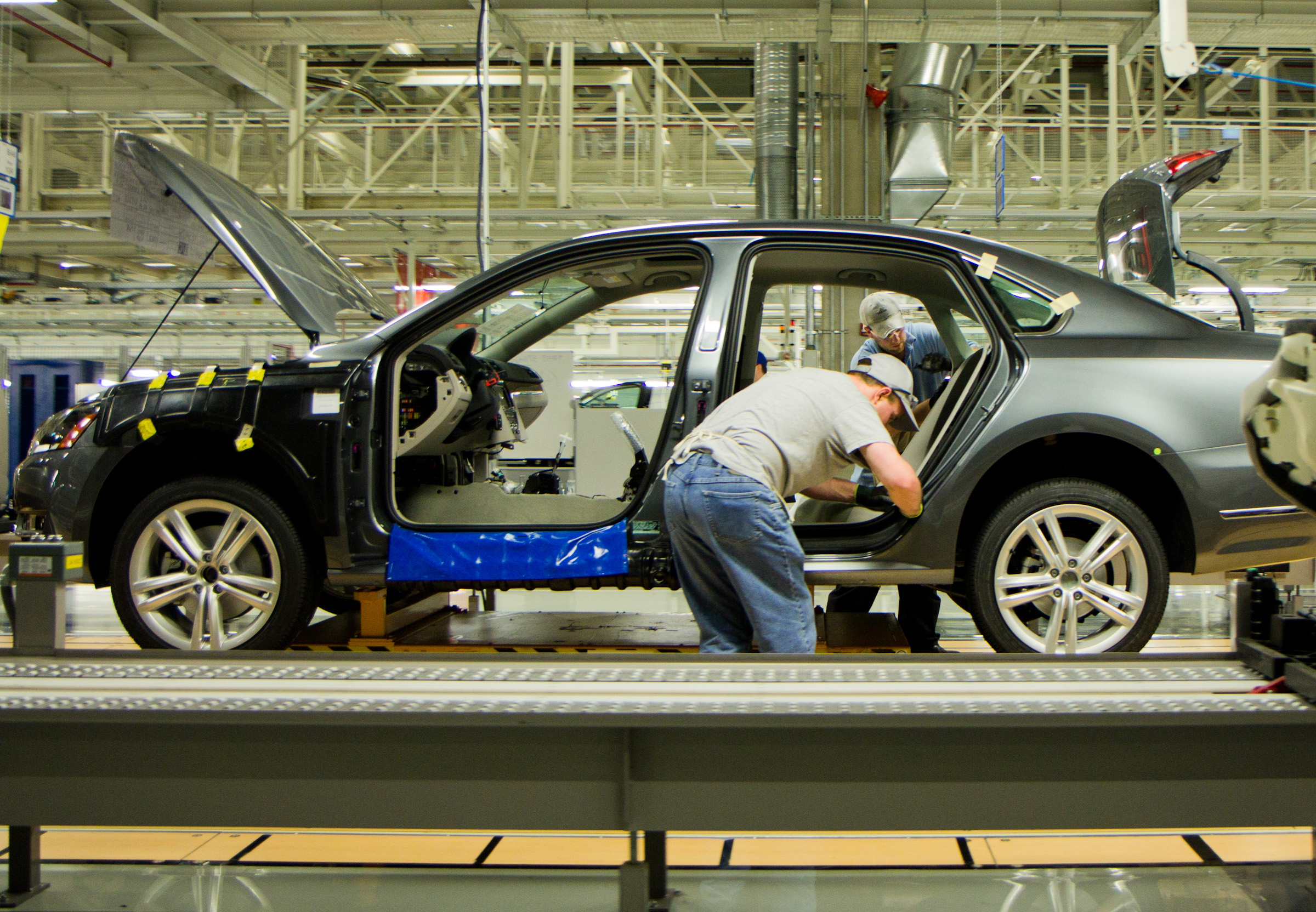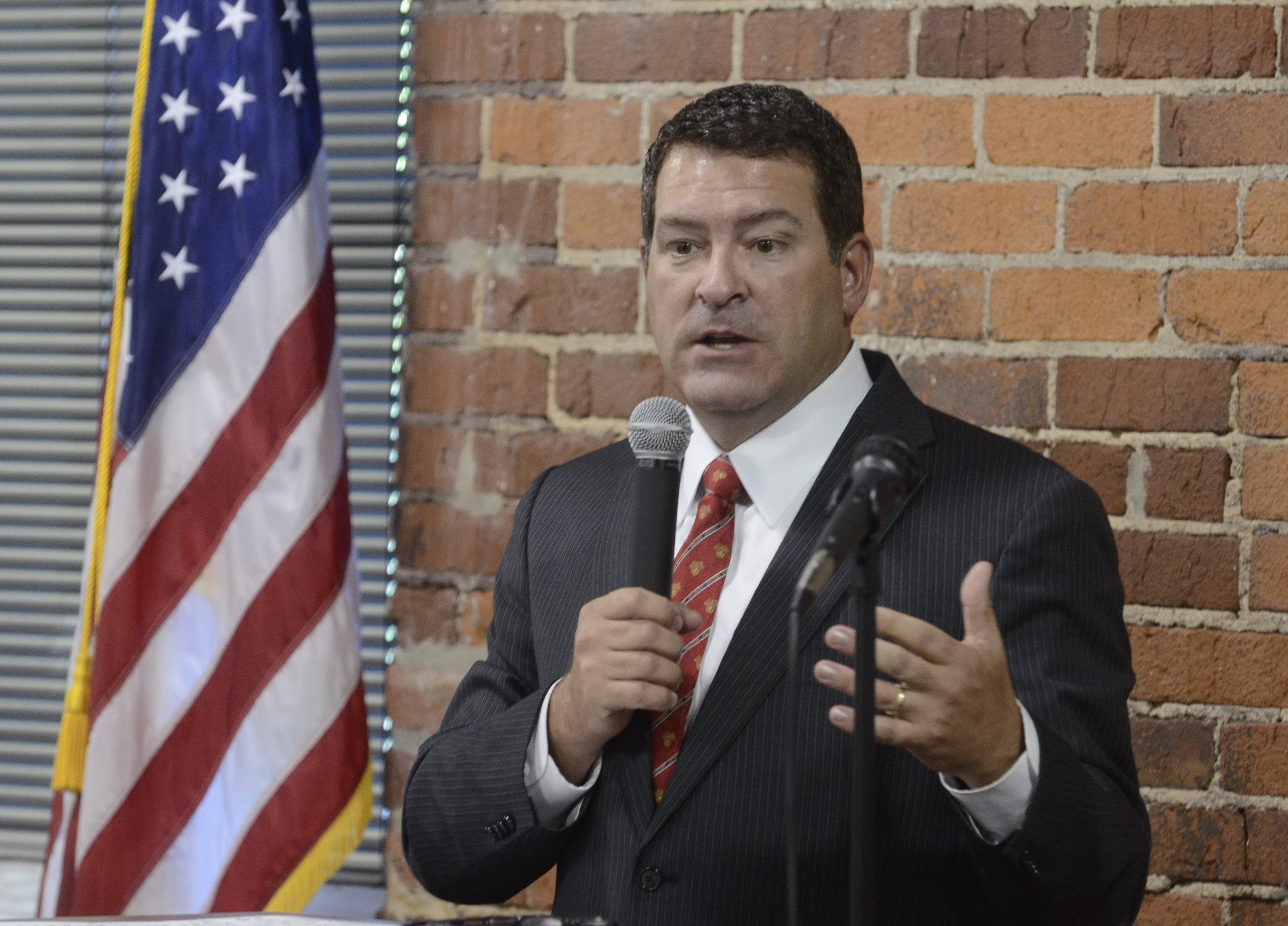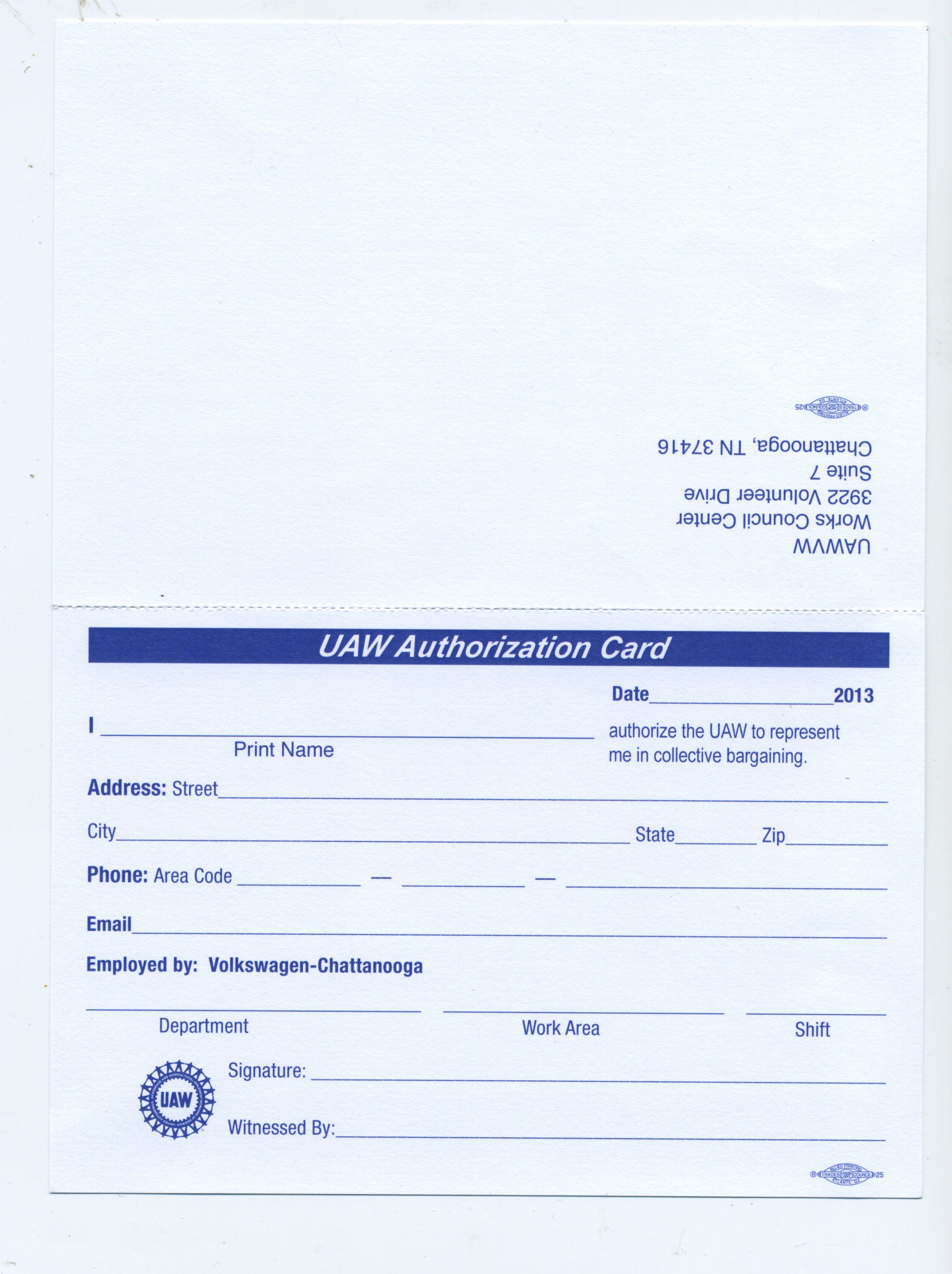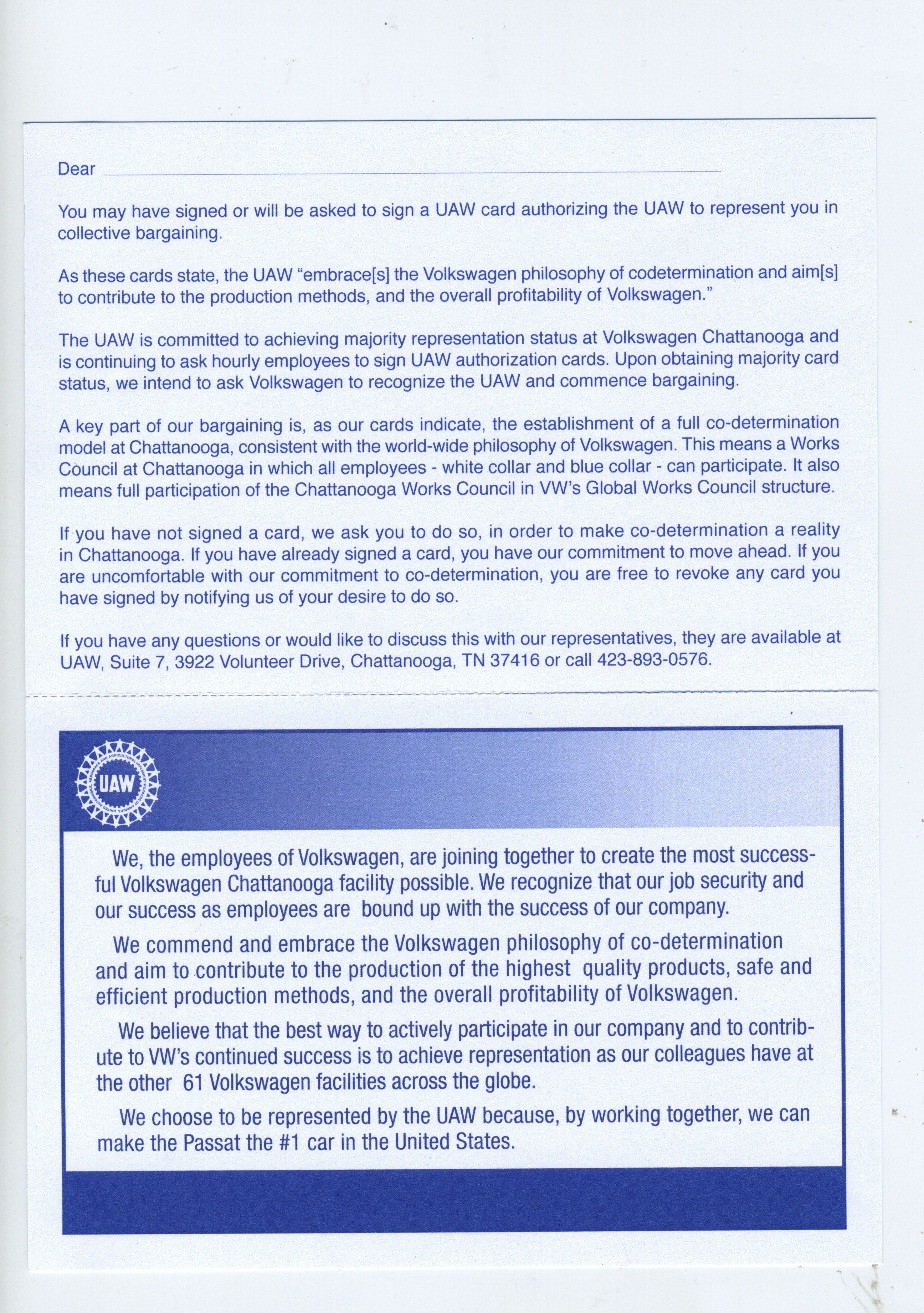A little-known change to Tennessee law could limit options for the United Auto Workers labor union, which is working to unionize the Volkswagen plant in Chattanooga.
The law, signed by Gov. Bill Haslam in June 2011, specifies secret ballot elections are the preferred way to designate support for a union, rather than the so-called "card check" method that requires organizers to simply get a signature on a piece of paper, according to State Sen. Mark Green, R-Clarksville.
Under such circumstance, no alternative means of designation shall be used in Tennessee as convincing evidence of employee majority support, the law says.
Green, the vice chairman of the Senate Commerce Committee, is calling for VW to follow the rule to allow workers a secret ballot election that he says would offer the same privacy for each worker as a political election.
Card checks, he said, leave workers open to intimidation, while secret ballot elections grant workers a moment behind the curtain to vote their conscience.
"You've got seven guys standing around you who work with you every day and they're saying, 'hey, sign this card,'" Green said. "We don't elect the governor that way, we don't elect our representatives that way, the ballot is secret. That's democracy."
But state legislators will have a hard time proving that Tennessee's law carries more weight than the federal National Labor Relations Board, which oversees union activity in the U.S., said Gary Casteel, regional director for the United Auto Workers.
"I mean, you could have something in the state charter taking voting rights away from women, but you can't do it because the federal law supersedes it," Casteel said. "The NLRB, that's the law of the land as far as labor law."
Tennessee Attorney General Bob Cooper wrote an opinion in 2011 that the state statute does not conflict with federal law
and is constitutional, but took the position that the law only applies to situations in which a secret ballot election has already been selected, possibly rendering the text meaningless.
But it may not come to a battle between state lawmakers and the federal agency, if a report from Germany turns out to be accurate. According to Reuters, a "source with knowledge of the thinking of the company's top executive board" said that the company will insist on a formal vote by the plant's workers, rather than a card check.
That would make business interests happy because many believe that a secret ballot decreases the chances of the union being certified at the Chattanooga plant. Green himself says he personally knows four manufacturers that have decided to hold off on expanding in the Volunteer State until the union issue is put to rest at Volkswagen. Though he declined to name them, citing their fear of retaliation from the UAW, Green said one of the four is a billion-dollar company that "makes things that Tennesseans love."
Casteel pushed back against charges that the UAW fears the secret ballot election, or that workers are being intimidated during the card check process, calling those assertions "laughable."
"We never said we wouldn't run an election," he said. "We're not scared to do it."
He reversed the charges of intimidation, saying that, in fact, secret ballot election would give so-called "outside interests" a 40-day window to put up billboards and TV ads in an attempt to sway workers. Cards, he said, carry a self-explanatory message on them and are less disruptive.
"Most all of those cards are employee-to-employee generated," Casteel said. "We've got only four organizers assigned to that project, and there are never more than a couple there at a time. We've not done one house call."
Text of 2011 state law:
All employees and employers in this state, when seeking to designate an exclusive bargaining representative through an election permitted by state or federal law, have the right to make such designation by secret ballot, when secret ballot is permitted by such law; under such circumstance, no alternative means of designation shall be used in this state as convincing evidence of employee majority support.
Contact staff writer Ellis Smith, esmith@times freepress.com, or 423-757-6315




